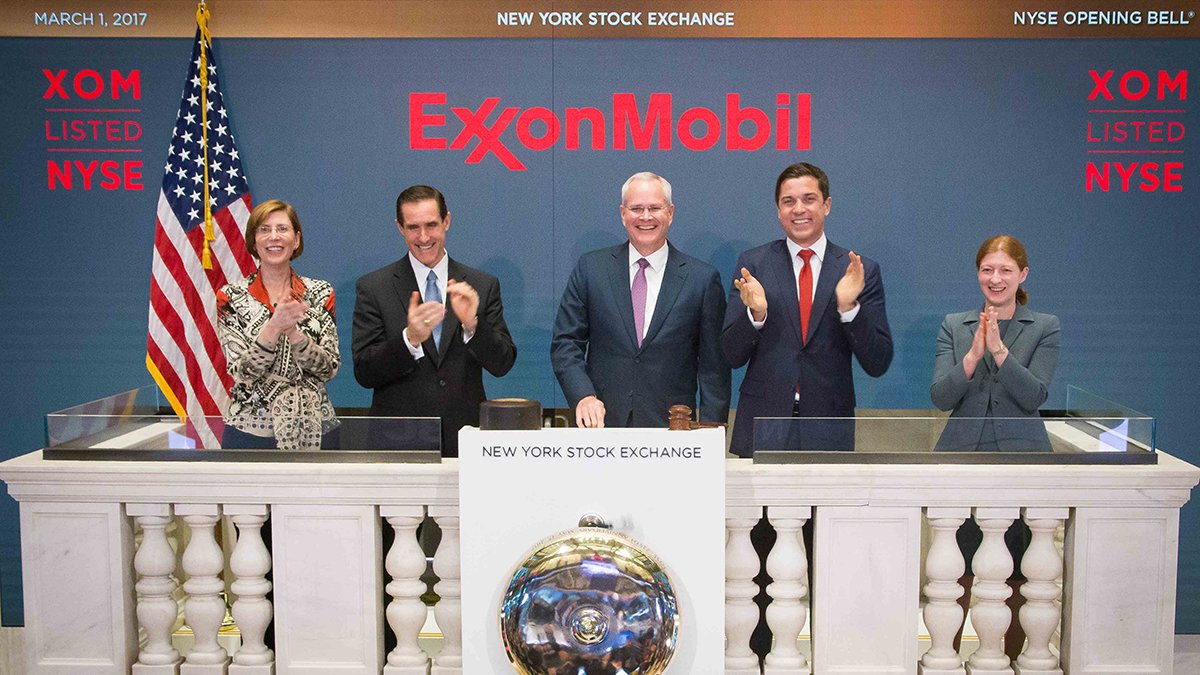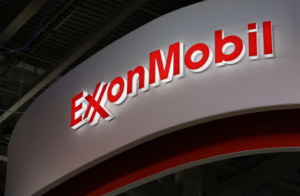Oil
Exxonmobil 2017 capital and exploration expenses to hit $22 billion, adds 340,000 OEBs in two years

Yemie ADEOYE
LAGOS-EXXONMOBIL, world’s largest publicly traded oil and gas corporation and a major operator in Nigeria’s upstream oil sub-sector has disclosed its readiness to succeed in any price environment by maximizing the competitive advantages of its integrated businesses and by investing in projects that generate high-value products across the commodity cycle, Chairman and Chief Executive Officer Darren W. Woods said recently.
“Our job is to compete and succeed in any market, regardless of conditions or price,” Woods said this during a presentation at the company’s annual analyst meeting at the New York Stock Exchange. “To do this, we must produce and deliver the highest-value products at the lowest-possible cost through the most-attractive channels in all operating environments.”
 ExxonMobil anticipates capital spending of $22 billion in 2017, an increase of 16 percent from 2016. Capital and exploration expenses through the end of the decade will average $25 billion annually.
ExxonMobil anticipates capital spending of $22 billion in 2017, an increase of 16 percent from 2016. Capital and exploration expenses through the end of the decade will average $25 billion annually.
More than one quarter of the planned spending this year will be made in high-value, short-cycle opportunities, including in the Permian and Bakken basins. Short-cycle investments are those expected to generate positive cash flow in less than three years after initial investment. The company has an inventory of more than 5,500 wells in the Permian and the Bakken with a rate of return greater than 10 percent at $40 a barrel, with nearly one-third generating significantly higher returns. Total annual net production growth from these basins through 2025 could be as high as 750,000 oil-equivalent barrels per day at a compound annual growth rate of about 20 percent.
At the same time, the company will advance longer-term projects focused on growing higher-value production in locations including Canada, Guyana and the United Arab Emirates. In Guyana, for example, two wells last year confirmed a world-class discovery with recoverable resources in excess of 1 billion oil-equivalent barrels. Guyana startup is expected by 2020, less than five years after the initial discovery well – a rare occurrence in the industry in terms of development time.
ExxonMobil expects the startup of five major upstream projects in 2017 and 2018, which will contribute an additional 340,000 oil-equivalent barrels per day of working-interest production capacity. Odoptu Stage 2 in Far East Russia and the Hebron project in Eastern Canada are expected to start up by year-end. Other projects planned for startup in the period are the Upper Zakum expansion in the United Arab Emirates, Barzan in Qatar and Kaombo in Angola. Since 2012, the company has started up 27 projects, adding 1.2 million oil-equivalent barrels per day of installed capacity. The company has an upstream portfolio of nearly 100 projects that are in various stages of planning, concept selection and construction.
These investments will support upstream volumes that are projected to be in the range of 4 million to 4.4 million oil-equivalent barrels per day through 2020.
In the downstream, the company is investing across the value chain to continue building on the strength of its portfolio of refining and other advantaged manufacturing assets. At its Rotterdam refinery, for example, the company is reconfiguring a hydrocracker unit to manufacture higher-value products, including premium lube base stocks and ultra-low sulfur diesel, by upgrading lower-value vacuum gas oil.
The chemical segment is investing to capture advantaged feed stocks and produce high-performance products in the U.S. Gulf Coast region and at its Singapore complex in Asia.
“Our integrated investments along the Gulf Coast will capture the full value of the unconventional resource molecule, from the wellhead to market,” Woods said.
During the meeting, ExxonMobil reviewed the following performance highlights. ExxonMobil has increased its dividend for 34 consecutive years through 2016, with an annual increase of almost 9 percent per year over the past 10 years, exceeding the S&P 500 and industry competitors during the same period. ExxonMobil was the only major integrated oil company to significantly increase its dividend last year by 3.5 percent. ExxonMobil recently completed its acquisition of InterOil to expand its acreage in Papua New Guinea and doubled its resource base in the Permian basin through another purchase. Since the Exxon and Mobil merger in 1999, the company has returned nearly $370 billion to shareholders in the form of dividends and share repurchases, more than the individual market values for nearly all of the S&P 500 companies. The company’s return on average capital employed over the past decade averaged 5 percentage points above its nearest competitor. ExxonMobil generated more than $26 billion of cash flow from operations and asset sales in 2016 including $4.3 billion from asset sales.
Oil
NNPC Targets 60% Methane Emission Reduction By 2031
The Nigerian National Petroleum Company Limited (NNPC) has unveiled a bold strategy to reduce methane emissions in the oil and gas sector by 60% by 2031, with an ultimate goal of achieving net-zero emissions by 2060.
This announcement reinforces Nigeria’s leadership role under the Global Methane Pledge initiative and its commitment to tackling climate change.
The Group Chief Executive Officer of NNPC, Mele Kyari, disclosed these plans during a meeting on Thursday with Robert Leahman, the U.S. State Department’s Global Methane Program Manager, and a delegation from Deloitte.
READ MORE: Atiku Gloats Over AUN’s Achievements Ahead Of 20th Anniversary
The discussions, held at the NNPC Towers in Abuja, focused on collaborative efforts to reduce methane emissions through innovative and sustainable practices.
“Reducing methane emissions is not just an environmental necessity but also a strategic imperative for Nigeria’s energy transition. We are leveraging partnerships to adopt global best practices and innovative solutions,” Kyari stated.
Key among these efforts is a pilot project in the Niger Delta, aimed at establishing emissions baselines, mitigating methane leaks, and promoting sustainable operations across Nigeria’s energy sector.
The project, a partnership between NNPC, Deloitte, and the U.S. Bureau of Energy Resources, will utilize data-driven methodologies to pinpoint and address methane hotspots.
Robert Leahman commended Nigeria’s proactive stance, describing it as a benchmark for other nations on the continent.
“Nigeria’s leadership under the Global Methane Pledge sets a standard for the continent. These initiatives will not only help reduce emissions but also drive sustainable development in the energy sector,” he said.
Kyari highlighted the broader benefits of addressing methane emissions, noting its significance for both environmental protection and economic efficiency.
“This collaboration is a game-changer. By addressing methane leaks, we’re reducing waste, saving costs, and protecting the environment. It’s a win-win for our economy and the planet,” he added.
Oil
FG Introduces New Incentives To Revitalize Nigeria’s Oil & Gas Industry
In a strategic move to revitalize Nigeria’s oil and gas sector, the Federal Government has unveiled two key fiscal incentives aimed at attracting investment and enhancing energy security.
The announcement was made by Mr. Wale Edun, the Minister of Finance and Coordinating Minister of the Economy on Wednesday.
The first initiative, the Value Added Tax (VAT) Modification Order 2024, introduces critical exemptions for essential energy products and infrastructure, including Diesel, Feed Gas, Liquefied Petroleum Gas (LPG), Compressed Natural Gas (CNG), Electric Vehicles, Liquefied Natural Gas (LNG) infrastructure, and Clean Cooking Equipment.
Read Also: Atiku Calls For Rotational Presidency Across Nigeria’s Geopolitical Zones
These exemptions are designed to reduce living costs for Nigerians, promote energy security, and accelerate the transition to cleaner energy alternatives.
The second initiative, the Notice of Tax Incentives for Deep Offshore Oil & Gas Production, offers new tax relief options for deep offshore exploration projects.
This measure aims to position Nigeria’s deep offshore basin as a premier destination for international oil and gas investments, boosting the country’s appeal to foreign investors.
These reforms are part of a broader set of policy initiatives, known as Policy Directives 40-42, endorsed by President Bola Ahmed Tinubu.
The directives reflect the administration’s commitment to fostering sustainable development in the energy sector and enhancing Nigeria’s competitive edge in the global oil and gas market.
Business
Tinubu set to approve ExxonMobil-Seplat oil deal, expands CNG bus initiative

By Yemie Adeoye
NIGERIA’s President Bola Tinubu has announced that the protracted ExxonMobil-Seplat upstream oil divestment will be formally approved by the Minister of petroleum within a matter of days, just as he announced his government’s intention to expand the Compress natural Gas, CNG buses initiative.
The President who stated this during his Independence day nationwide broadcast stated that the move is in line with his administration’s commitment to free enterprise, free entry and free exit in investments which is the hallmark of his administration investment policy.
“Fellow compatriots, our administration is committed to free enterprise, free entry, and free exit in investments while maintaining the sanctity and efficacy of our regulatory processes. This principle guides the divestment transactions in our upstream petroleum sector, where we are committed to changing the fortune positively. As such, the ExxonMobil Seplat divestment will receive ministerial approval in a matter of days, having been concluded by the regulator, NUPRC, in line with the Petroleum Industry Act, PIA. This was done in the same manner as other qualified divestments approved in the sector.”
The President also seized the opportunity to plead with Nigerians to be patient with his administration’s reform policies. “As your President, I assure you that we are committed to finding sustainable solutions to alleviate the suffering of our citizens. Once again, I plead for your patience as the reforms we are implementing show positive signs, and we are beginning to see light at the end of the tunnel”.
“Our energy transition programme is on course. We are expanding the adoption of the Presidential Initiative on Compressed Natural Gas for mass transit with private sector players. The Federal Government is ready to assist the thirty-six States and FCT in acquiring CNG buses for cheaper public transportation.
Fellow Nigerians, while we are working to stabilise the economy and secure the country, we also seek to foster national unity and build social harmony and cohesion. Our economy can only thrive when there is peace”. he enthused.













